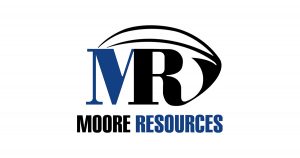What is Hired & Non-Owned Auto Insurance?

Photo by why kei on Unsplash
What is Hired & Non-Owned Auto Insurance?
Hired and non-owned auto (HNOA) insurance covers commercial auto liability expenses brought about by accidents involving rented, hired or borrowed vehicles for business purposes. Hired autos are those vehicles leased, hired rented or borrowed by your business in the ordinary course of doing business. Non-owned autos are those motor vehicles owned by company employees and used for official business errands.
With hired and non-owned auto insurance, your business maintains insurance protection while employees are driving a vehicle for work purposes, even though your company or business does not own the vehicle. HNOA closes a gap that the majority of commercial auto insurance policies tend to have. Most commercial auto policies exclude accidents that involve business use of autos that are not titled to the business or company.
What is Covered by HNOA Insurance?
There is a common misconception from small business owners in thinking that their employees personal motor vehicle insurance offers the adequate protection. However, neither your personal auto insurance, nor the personal auto policy of your employees will cover you from lawsuits related to business use of the vehicle. If your business or company uses rented, leased, or personal vehicles, hired and non-owned auto insurance can help.
Typically, an HNOA policy covers liability claims and the ensuing defense costs. Besides, it can cover lawyer fees, judgments/settlements, and other court costs in case your business is sued following the accident. The policy also covers the actions of volunteer, temporary or full-time staff.
The HNOA policy, however, doesn't cover physical auto repair expenses for the employee-owned or rented vehicle. HNOA also doesn't cover any damage to goods/property being transported inside non-owned or the hired vehicle. HNOA coverage only applies to costs paid out for 3rd-party property damage and injuries.
Which Businesses Qualify for HNOA Insurance?
Hired and non-owned auto insurance are, in fact, two distinct types of auto insurance, but many insurers generally group them together because the exposures covered are quite similar. HNOA is available to any small business that fulfils an insurance company's requirements. This information is based on details such as business size, credit history, and prior auto insurance claims. Businesses that don't demonstrate a safe driving history, financial responsibility may be denied HNOA insurance or get charged higher premiums.
What is the Cost of Hired & Non-Owned Auto Insurance?
A variety of factors determines the cost of hired and non-owned auto insurance. Insurance carriers will factor in the driver's age, driving record, and the types of vehicles used. Other key factors are whether or not the company employees will be operating locally or internationally (or both). Also factored in are the number of vehicles borrowed, hired or rented and the extent to which these are operated. HNOA insurance can be purchased as a rider to your general business liability policy or added to your business auto policy.
Review with an Agent
For information on the whether Hired & Non-Owned auto insurance is right for your business, we recommend speaking with a qualified Moore Resources Insurance agent.

Moore Resources is an Independent Insurance Agency located in St. Petersburg, FL and offering Homeowners Insurance, Auto Insurance, Personal Insurance and Business Insurance. Our reach extends beyond the Tampa Bay area to the entire state of Florida. Moore Resources has regionally been dedicated to serving the local residents of Pinellas, Hillsborough, Polk, Pasco, Manatee and Sarasota counties; including St. Pete, Tampa, Clearwater, Bradenton, Brandon, Dunedin, Gulfport, Lakeland, Largo, Lutz, Palm Harbor, Pinellas Park, Riverview, Ruskin, Seffner, Seminole, Temple Terrace, Tierra Verde, Town n Country, and the Gulf Coast Beaches.
The purpose of this blog is to present general information only. It does not interpret specific policies or coverage. In order to obtain detailed information regarding your insurance, contact a licensed insurance agent.









